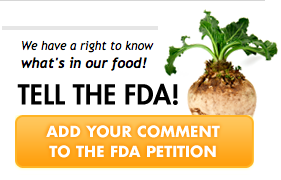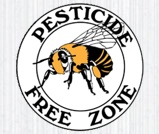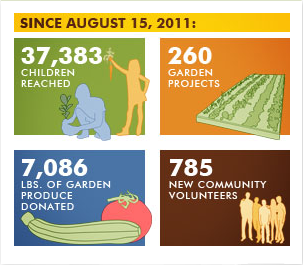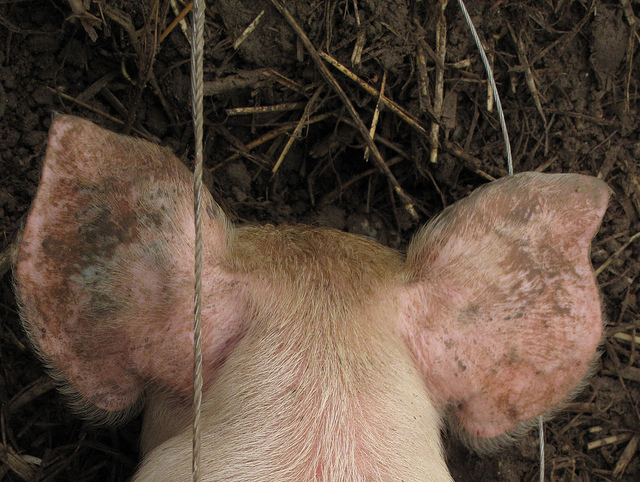
Ready to start fixing the food system, but don’t know where to start? Why not kick things off with this list of easy, meaningful actions you can take right now — some without even leaving your computer screen.
1. Make GMOs visible to everyone
Walk through the aisles of your average supermarket, and an estimated 80 percent of the packaged foods there will contain genetically modified ingredients. But you’d never know that by looking; the government hasn’t required labeling because it does not want to “suggest or imply that GM/GE foods are in any way different from other foods.” Some brands have started to put the “Non-GMO Project Verified” label on their packaging, but that’s a voluntary effort.
Now, you can join the estimated 90 percent of Americans who support labeling laws to help make transparency within the food system the rule, not the exception. Sign the Just Label It campaign’s petition calling on the Food and Drug Administration to require mandatory labeling for genetically engineered foods.
2. Keep “pink slime” out of school lunch
Shortly after the latest round of pink slime media coverage began, the United States Department of Agriculture (USDA) announced that schools would have the option to choose whether or not to include the ammonia-treated filler in the lunches they serve.
This solution is problematic for two reasons: It doesn’t stop pink slime from being produced and sold, and the “non-pink slime option” will be more expensive, meaning children in less-affluent communities will be the ones left eating the stuff. Want to keep pink slime out of the National School Lunch Program entirely? Sign the letter calling on the USDA to do just that.
 3. Tell the nation’s biggest food retailer not to sell GMO corn
3. Tell the nation’s biggest food retailer not to sell GMO corn
Monsanto’s new genetically engineered sweet corn could be planted this spring, but it hasn’t been proven safe and it won’t be labeled (see No. 1 above) when it reaches store shelves. And unlike most genetically engineered foods, which are currently used in animal feed or as ingredients in packaged foods, Monsanto’s sweet corn was developed for direct human consumption (as in, right off the cob).
As a way to stem the potential growth of the crop, advocacy group Food and Water Watch (FWW) is looking to Walmart, America’s largest grocery store, to refuse to sell it. FWW is collecting signatures through this petition to deliver to Walmart by April 1.
4. Keep “Agent Orange” off our food
As we reported in January, the USDA is currently considering approval of a new variety of genetically engineered corn from Dow Chemical that is resistant to 2,4-D, one of the most commonly used herbicides in the U.S. — and one of the main ingredients in Agent Orange.
The corn is controversial to say the least: If approved, it will increase the use of 2,4-D, which has been associated with cancer, nerve damage, hormone disruption, and other health effects. Some are also concerned that more 2,4-D could lead to a new breed of “superweed,” the fast-growing weeds that have developed resistance to the herbicide Roundup (glyphosate) since Monsanto introduced its genetically engineered Roundup Ready crops.
Check out this fact sheet from the Center for Food Safety [PDF]. Then contact the USDA before the public comment period ends on April 27 to tell them what you think.
 5. Create a safe haven for bees
5. Create a safe haven for bees
You’ve probably heard about Colony Collapse Disorder, and its link to pesticides, but find yourself wondering what you can do to help.
Honey Haven, a project of Pesticide Action Network and Beyond Pesticides, is asking people around the U.S. to create safe, pesticide-free havens for bees and then to put those havens on a collective map. Creating a haven is easy: You’ll need some space in your garden, or on your front stoop, back porch, green roof, or wherever to set up a few containers with the right kinds of plants. Then take the Honey Haven pledge.
Bonus points: Hook up the youth

FoodCorps stats, courtesy of FoodCorps.org
Do you know a young person with the drive to make a difference in the food system? Encourage them to join FoodCorps, an AmeriCorps initiative that Michael Pollan describes as, “one of your generation’s most important projects.” FoodCorps engages with schools and NGOs in gardens, classrooms, cafeterias, and in food-insecure communities around the country. (See our New Agtivist interview with this year’s FoodCorps participants for added inspiration.) But hurry, the deadline is March 25!
If you know someone between the ages of 13 and 22 who is already actively working for sustainable food or another environmental issue, encourage them to apply for a David Brower Award. Winners receive a $3,000 cash prize, a film about their work, and a weeklong trip to California.




